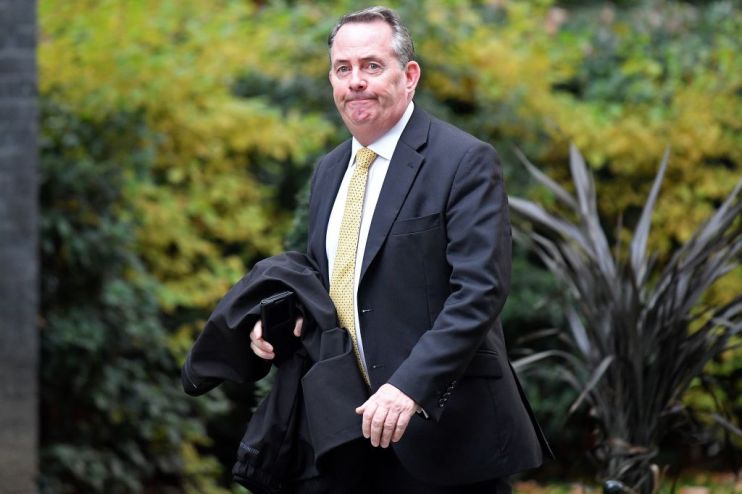Frictionless trade ‘just not possible’ says former minister Liam Fox

Any automatic alignment to EU regulations as they change over time would be “completely incompatible with the concept of Brexit,” former trade minister Liam Fox will tell Swiss business leaders tomorrow.
With just 10 days before the UK leaves the EU, Fox will stress that frictionless trade between the two sides is “simply not possible” under Downing Street’s vision of the future relationship.
Read more: Don’t run for the hills over alignment – the big question is where and when to diverge
Fox, who famously said a post-Brexit free trade deal with the EU should be the “easiest in human history”, will tell the business audience that the regulatory relationship will be “the most contentious” part of talks, and warn that “misunderstandings in the terminology” are already causing confusion.
“For the UK, the key element of any future regulatory environment will be the ability to determine its own rules so let us be clear at the outset that ‘alignment’ does not mean ‘control’,” he will say at a breakfast briefing on Tuesday morning.
“The UK will retain its own decision-making control and any talk about what is known as ‘dynamic alignment’, the automatic readjustment of regulation by the UK in line with any EU changes, would be completely incompatible with the concept of Brexit and would be politically unacceptable to the UK government and those of us who voted to leave the EU”.
Fox will remind the audience that the EU will not allow for the UK to cherry pick from outside the Single Market, but stress: “The EU cannot ‘cherry pick’ itself by trying to control a state outside the Single Market and the Customs Union.
“Within this new dynamic it will be up to the UK to decide how similar or dissimilar our regulations are compared to those operated by the EU… Some UK sectors may want higher or lower levels of ‘voluntary’ alignment but the concept of dynamic alignment is a dead duck. Even if there is voluntary similarity in regulations the key will be that the UK must have the freedom to diverge at any point.”
This gets to the heart of the wider debate about the future of the global trading system, Fox will say, highlighting the government’s preferred system of equivalence “where the outcomes are agreed but different parties to an agreement can find their own ways of achieving them” as the best route.
“This leaves the door open to innovation creating greater efficiency in reaching these goals and is much more compatible with a dynamic and competitive global economy”, he will add.”
Main image: Getty